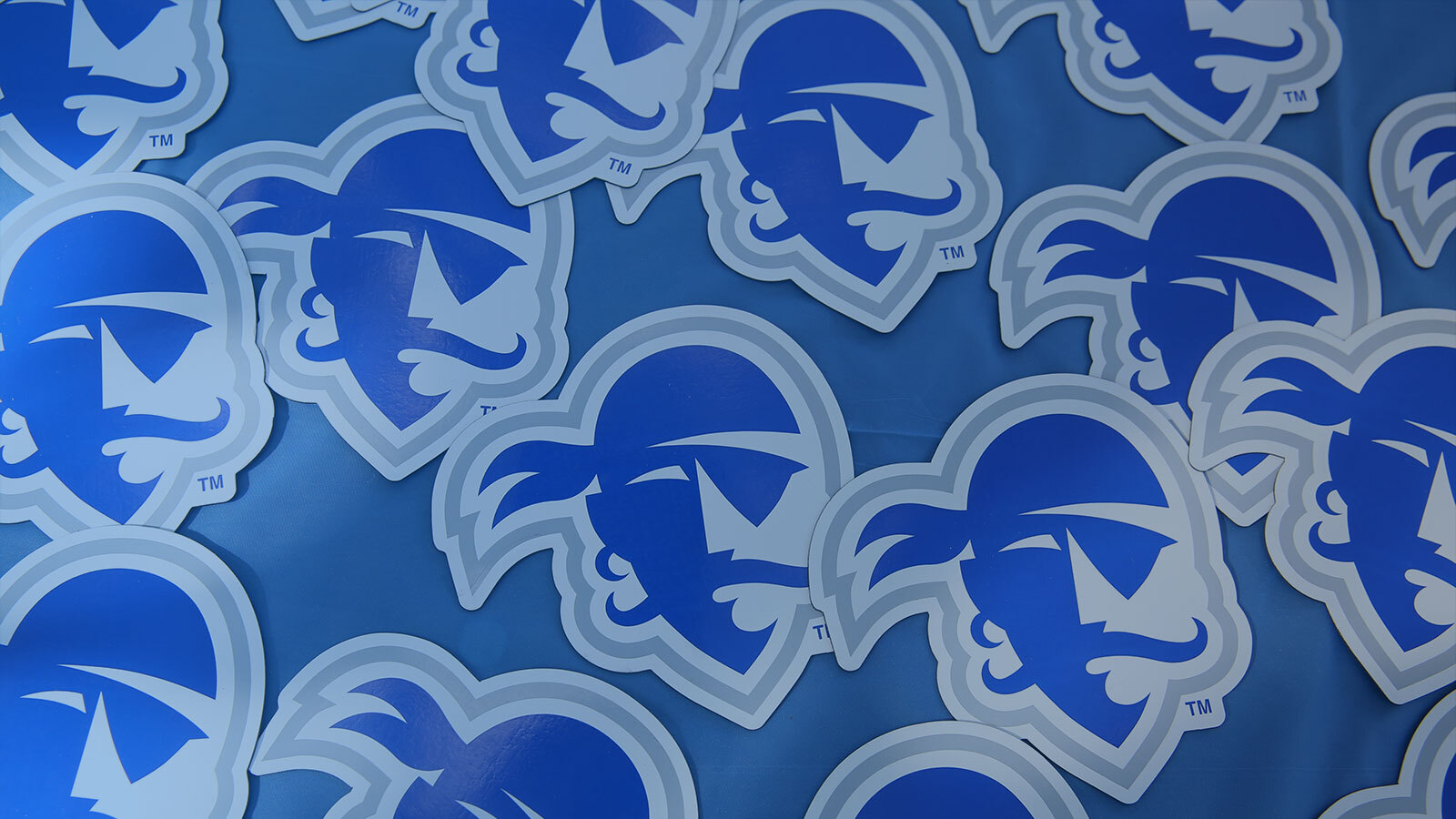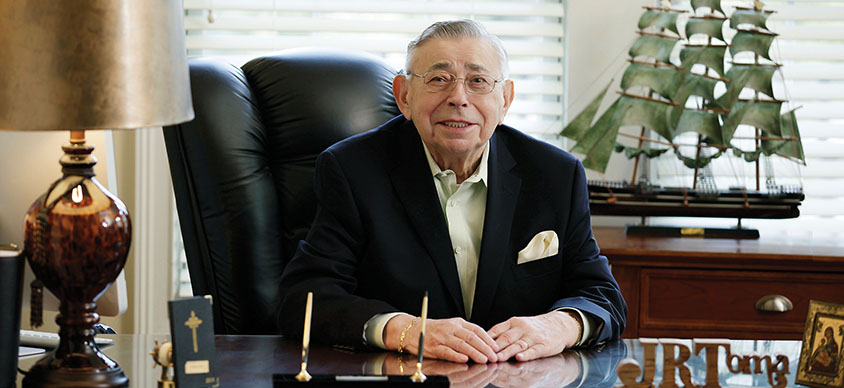A Grand Adventure
Floating in the Atlantic Ocean in 1944 as a 17-year-old Coast Guardsman, Joseph Toma '49 couldn't possibly know how interesting his life would eventually become.
How a chaplain named Jarvais would fast-track him into Seton Hall; how he'd fall in love on a subway ride to Jersey City; how three of his four children would follow him to the University; how he would become a successful contractor for the national defense establishment.
A misfiring depth-charge detonator had blown Toma and a shipmate overboard as their convoy rushed to deliver materials and equipment for D-Day.
Incredibly, their one tiny beacon light allowed the Coast Guard to locate its two lost souls. “I learned when there is a difficult situation, you pull yourself up, trust in God, and do what needs to be done,” Toma says.
A mentor who later helped Toma pull himself up again was Monsignor Walter G. Jarvais, who served as chaplain at the Coast Guard's base in New London, Conn. During leaves, Toma served as Monsignor Jarvais' altar boy.
Monsignor Javais had temporarily left a post as a Seton Hall professor to do his part in the war. “He told me, ‘When you get discharged, give me a call if you want to go to college.'” When that time came, “he had a Seton Hall application ready for me to sign.”
Toma recalls that his first nights as a Seton Hall student were spent on a cot in the gymnasium. And when deconstructed barracks arrived from Fort Dix for students to room in, he was assigned a room with former Coast Guard radio operator George McDonald, who would become a lifelong friend.
A business professor, William Dineen, would steer Toma toward a business degree. Dineen's axiom was: "Make sure your integrity is true blue. Never tarnish it."
Perhaps the only person to question that integrity was Toma's future wife, he says with a laugh. He had started a training course with Helen Scanlon, and on the street afterward, she whirled around and accused him of following her. Toma denied it vehemently. Unconvinced, she said: “Are you sure? My father is a police lieutenant and I have a whistle!”
Toma made clear his honorable intentions on a subway ride home, which was followed by a walk to her house that included stops for coffee and ice cream. “I'm going to marry that girl,” he told two friends the next day. The couple married six months later, and the union lasted 62 years, until her death in September 2012.
Toma went to work for the Kaiser-Frazer Corp., where he learned every facet of defense contracting from the noted industrialist Henry Kaiser. By 1961, he had business expertise in abundance, but it was his wife who urged him to launch his entrepreneurial venture, Astrolab. (A privately held company recently sold to a Swiss buyer, Astrolab makes microwave gear for the government.) So Toma took out a second mortgage and the rest, as they say, is history.
Along the way, Astrolab expanded operations into Costa Rica, earned numerous patents and received multiple honors, including the Small Business Prime Contractor Award given by the Small Business Administration and one of the first Safety and Health Achievement Recognition Program designations issued by the Occupational Safety and Health Administration.
Today, Toma is creating another legacy by making a gift to Seton Hall for an endowed scholarship by designating the University as a beneficiary of his individual retirement account. “I got a good education there,” he explains simply.
Of course, no such gift would exist if things had gone differently in 1944. Toma doesn't think much about that. But he does keep a clock that was pulled off the Coast Guard cutter from which he'd fallen into the ocean.
The brass timepiece, now in his son Stephen's possession, is a remembrance of a time when the fate of Joseph Toma and his country both hung in the balance.
At a Glance: Retirement Accounts
- Contact the plan custodian for a beneficiary designation form.
- Designate Seton Hall University to receive all or a portion of the assets held in the retirement plan.
- Avoid the potential double taxation your retirement savings would face if you designated these savings to your heirs.
- Continue to take regular lifetime withdrawals.
- Maintain flexibility to change designation if your family's needs change during your lifetime.


